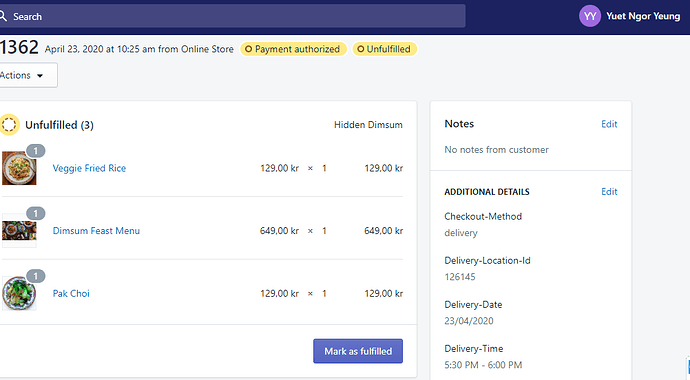@irook
I was looking for the same thing and finally figured it out. You need to query the fulfillment_orders endpoint [GET] for the order.
myshopify.com/admin/api/2021-07/orders/{order_id}/fulfillment_orders.json
{
“fulfillment_orders”: [
{
“id”: null,
“shop_id”: null,
“order_id”: null,
“assigned_location_id”: null,
“request_status”: “unsubmitted”,
“status”: “open”,
“supported_actions”: [
“create_fulfillment”
],
“destination”: {
“id”: null,
“address1”: “null”,
“address2”: “”,
“city”: “null”,
“company”: “null”,
“country”: “null”,
“email”: “null”,
“first_name”: “null”,
“last_name”: “null”,
“phone”: “null”,
“province”: “null”,
“zip”: “null”
},
“line_items”: [
{
“id”: null,
“shop_id”: null,
“fulfillment_order_id”: null,
“quantity”: null,
“line_item_id”: null,
“inventory_item_id”: null,
“fulfillable_quantity”: null,
“variant_id”: null
}
],
“fulfill_at”: null,
“international_duties”: null,
“delivery_method”: null,
“assigned_location”: {
“address1”: “null”,
“address2”: null,
“city”: “null”,
“country_code”: “null”,
“location_id”: null,
“name”: “null”,
“phone”: “”,
“province”: “null”,
“zip”: “null”
},
“merchant_requests”:
}
]
Though, seemingly counter-intuitive, the FulfillmentOrder appears to already exist, with just the presence of an unfulfilled order.
note: nulled out values for obvious reasons

